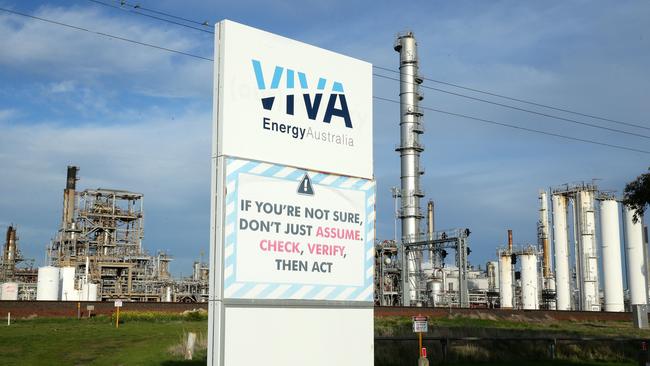Viva Energy opts for conservative start to trading with $2.50 price
Viva Energy has taken a conservative pricing approach to position itself for a strong debut on the ASX this week.

Viva Energy has taken a conservative pricing approach to position itself for a strong debut on the Australian stock exchange this week, as it locked in $2.65 billion worth of investor support yesterday for what is the largest float on the market since Medibank.
Viva will become the country’s newest publicly listed fuel retailer, refiner and importer tomorrow, worth $4.86bn, after shares in the IPO bookbuild were fixed at $2.50 each — the bottom of its price range, as first reported by The Australian online yesterday.
A move by advisers to get the deal away was viewed by many in the market as a signal the IPO markets remain open for business, with the previous deal of such a size being the $5.7bn float by the commonwealth of health insurer Medibank.
It is understood Viva Energy received bids throughout its price range of between $2.50 and $2.65 a share, but a strong level of support from high-quality Australian institutional investors came in around the $2.50-a-share level.
Viva had been eager to have those investors on its register once it began trading, leading to the decision to price the IPO at the bottom of its range.
Retail investors make up 22 per cent of the register, while institutional cornerstone investors took $1.2bn worth of the stock, with the rest sold to other institutions in the past two days.
Investors were attracted to its stable earnings and the low-risk business.
The price for the deal equates to about 6.5 times Viva’s underlying earnings before interest, tax, depreciation and amortisation, and analysts are betting on a good start to its life as a listed business.
Viva supplies a quarter of Australia’s fuel, including 50 airports, and operates 1100 petrol stations nationally.
It comprises Shell’s Australian downstream energy business that vendor Vitol Investment Partnership purchased from the energy giant for $2.9bn in 2014 and renamed Viva Energy.
The parent company invested about $1bn in the business and bought Shell’s aviation assets in 2016 for $US250 million, but sold off the petrol station sites through the Viva Energy REIT, which listed as a $1.5bn business two years ago.
Viva also operates the Geelong oil refinery and, for certain sites, it also owns the convenience store retail offerings although most are operated by Coles.
This is unlike Caltex, which manages the retail component of its petrol station sites in house.
Viva’s move to raise $2.65bn will see Vitol and other backers, including the Abu Dhabi Investment Council, retain 45 per cent of the business. The company earlier signalled it planned to retain between 40 per cent and 50 per cent and indicated in its prospectus it would raise between $2.4bn and $3.1bn.
The argument earlier for the price landing at the bottom end of the range had been that Viva shares would only be purchased by investors at a discount to Caltex — the only Australian-listed oil refiner to date that trades at 7.5 times its EBITDA and has an $8.12bn market value.
The market value range for Viva Energy book build had been between $4.861bn and $5.153bn.
Working on the transaction as joint lead managers are UBS, Deutsche Bank and Bank of America Merrill Lynch.




To join the conversation, please log in. Don't have an account? Register
Join the conversation, you are commenting as Logout